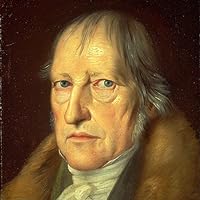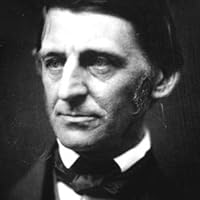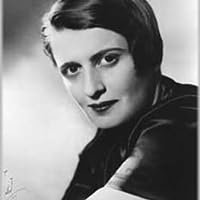Abstraction Quotes
Quotes tagged as "abstraction"
Showing 1-30 of 104

“Human speech is like a cracked kettle on which we tap crude rhythms for bears to dance to, while we long to make music that will melt the stars.”
― Madame Bovary
― Madame Bovary

“abstraction, n.
Love is one kind of abstraction. And then there are those nights when I sleep alone, when I curl into a pillow that isn't you, when I hear the tiptoe sounds that aren't yours. It's not as if I can conjure you up completely. I must embrace the idea of you instead.”
― The Lover's Dictionary
Love is one kind of abstraction. And then there are those nights when I sleep alone, when I curl into a pillow that isn't you, when I hear the tiptoe sounds that aren't yours. It's not as if I can conjure you up completely. I must embrace the idea of you instead.”
― The Lover's Dictionary

“People who are too fastidious towards the finite never reach actuality, but linger in abstraction, and their light dies away.”
―
―

“And in this passion for understanding her soul lay close to his; she had him all to herself. But he must be made abstract first.”
― Sons and Lovers
― Sons and Lovers

“What, then, is truth? A mobile army of metaphors, metonyms, and anthropomorphisms – in short, a sum of human relations, which have been enhanced, transposed, and embellished poetically and rhetorically, and which after long use seem firm, canonical, and obligatory to a people: truths are illusions about which one has forgotten that this is what they are; metaphors which are worn out and without sensuous power; coins which have lost their pictures and now matter only as metal, no longer as coins.”
―
―

“It always seems as though the definition of love will remain debatable by an opinionated world.”
― Salomé: In Every Inch In Every Mile
― Salomé: In Every Inch In Every Mile

“This idea that there is generality in the specific is of far-reaching importance.”
― Gödel, Escher, Bach: An Eternal Golden Braid
― Gödel, Escher, Bach: An Eternal Golden Braid

“The propensity to excessive simplification is indeed natural to the mind of man, since it is only by abstraction and generalisation, which necessarily imply the neglect of a multitude of particulars, that he can stretch his puny faculties so as to embrace a minute portion of the illimitable vastness of the universe. But if the propensity is natural and even inevitable, it is nevertheless fraught with peril, since it is apt to narrow and falsify our conception of any subject under investigation. To correct it partially - for to correct it wholly would require an infinite intelligence - we must endeavour to broaden our views by taking account of a wide range of facts and possibilities; and when we have done so to the utmost of our power, we must still remember that from the very nature of things our ideas fall immeasurably short of the reality.”
― The Magic Art and the Evolution of Kings, Part 1
― The Magic Art and the Evolution of Kings, Part 1

“You can define a net two ways, depending on your point of view. Normally you would say it is a meshed instrument designed to catch fish. But you could, with no great injury to logic, reverse the image and define the net as a jocular lexicographer once did: he called it a collection of holes tied together with string.”
― Flaubert's Parrot
― Flaubert's Parrot

“Abstract words such as glory, honor, courage, or hallow were obscene beside the concrete names of villages, the numbers of roads, the names of rivers, the numbers of regiments and the dates.”
― A Farewell to Arms
― A Farewell to Arms

“It must be this overarching commitment to what is really an abstraction, to one's children right or wrong, that can be even more fierce than the commitment to them as explicit, difficult people, and that can consequently keep you devoted to them when as individuals they disappoint. On my part it was this broad covenant with children-in-theory that I may have failed to make and to which I was unable to resort when Kevin finally tested my maternal ties to a perfect mathematical limit on Thursday. I didn't vote for parties, but for candidates. My opinions were as ecumenical as my larder, then still chock full of salsa verde from Mexico City, anchovies from Barcelona, lime leaves from Bangkok. I had no problem with abortion but abhorred capital punishment, which I suppose meant that I embraced the sanctity of life only in grown-ups. My environmental habits were capricious; I'd place a brick in our toilet tank, but after submitting to dozens of spit-in-the-air showers with derisory European water pressure, I would bask under a deluge of scalding water for half an hour. My closet wafter with Indian saris, Ghanaian wraparounds, and Vietnamese au dais. My vocabulary was peppered with imports -- gemutlich, scusa, hugge, mzungu. I so mixed and matched the planet that you sometimes worried I had no commitments to anything or anywhere, though you were wrong; my commitments were simply far-flung and obscenely specific.
By the same token, I could not love a child; I would have to love this one. I was connected to the world by a multitude of threads, you by a few sturdy guide ropes. It was the same with patriotism: You loved the idea of the United States so much more powerfully than the country itself, and it was thanks to your embrace of the American aspiration that you could overlook the fact that your fellow Yankee parents were lining up overnight outside FAO Schwartz with thermoses of chowder to buy a limited release of Nintendo. In the particular dwells the tawdry. In the conceptual dwells the grand, the transcendent, the everlasting. Earthly countries and single malignant little boys can go to hell; the idea of countries and the idea of sons triumph for eternity. Although neither of us ever went to church, I came to conclude that you were a naturally religious person.”
― We Need to Talk About Kevin
By the same token, I could not love a child; I would have to love this one. I was connected to the world by a multitude of threads, you by a few sturdy guide ropes. It was the same with patriotism: You loved the idea of the United States so much more powerfully than the country itself, and it was thanks to your embrace of the American aspiration that you could overlook the fact that your fellow Yankee parents were lining up overnight outside FAO Schwartz with thermoses of chowder to buy a limited release of Nintendo. In the particular dwells the tawdry. In the conceptual dwells the grand, the transcendent, the everlasting. Earthly countries and single malignant little boys can go to hell; the idea of countries and the idea of sons triumph for eternity. Although neither of us ever went to church, I came to conclude that you were a naturally religious person.”
― We Need to Talk About Kevin

“A map is not the territory it represents, but, if correct, it has a similar structure to the territory, which accounts for its usefulness.”
― Science and Sanity: An Introduction to Non-Aristotelian Systems and General Semantics
― Science and Sanity: An Introduction to Non-Aristotelian Systems and General Semantics

“I imagined a labyrinth of labyrinths, a maze of mazes, a twisting, turning, ever-widening labyrinth that contained both past and future and somehow implied the stars. Absorbed in those illusory imaginings, I forgot that I was a pursued man; I felt myself, for an indefinite while, the abstract perceiver of the world. The vague, living countryside, the moon, the remains of the day did their work in me; so did the gently downward road, which forestalled all possibility of weariness. The evening was near, yet infinite.”
― Ficciones
― Ficciones

“All religions are good 'in principle' - but unfortunately this abstract Good has only rarely prevented their practitioners from behaving like bastards.”
― Farewell to Reason
― Farewell to Reason

“Abstraction can provide stumbling blocks for people of strange intelligence.”
― Bouvard and Pécuchet
― Bouvard and Pécuchet

“I was reminded of a painter friend who had started her career by depicting scenes from life, mainly deserted rooms, abandoned houses and discarded photographs of women. Gradually, her work became more abstract, and in her last exhibition, her paintings were splashes of rebellious color, like the two in my living room, dark patches with little droplets of blue. I asked about her progress from modern realism to abstraction. Reality has become so intolerable, she said, so bleak, that all I can paint now are the colors of my dreams.”
― Reading Lolita in Tehran: A Memoir in Books
― Reading Lolita in Tehran: A Memoir in Books

“Perhaps this is what a state actually is: a combination of exceptional violence and the creation of a complex social machine, all ostensibly devoted to acts of care and devotion.
There is obviously a paradox here. Caring labour is in a way the very opposite of mechanical labour: it is about recognizing and understanding the unique qualities, needs and peculiarities of the cared-for – whether child, adult, animal or plant – in order to provide what they require to flourish. Caring labour is distinguished by its particularity. If those institutions we today refer to as ‘states’ really do have any common features, one must certainly be a tendency to displace this caring impulse on to abstractions; today this is usually ‘the nation’, however broadly or narrowly defined. Perhaps this is why it’s so easy for us to see ancient Egypt as a prototype for the modern state: here too, popular devotion was diverted on to grand abstractions, in this case the ruler and the elite dead. This process is what made it possible for the whole arrangement to be imagined, simultaneously, as a family and as a machine, in which everyone (except of course the king) was ultimately interchangeable. From the seasonal work of tomb-building to the daily servicing of the ruler’s body (recall again how the first royal inscriptions are found on combs and make-up palettes), most of human activity was directed upwards, either towards tending rulers (living and dead) or assisting them with their own task of feeding and caring for the gods.”
― The Dawn of Everything: A New History of Humanity
There is obviously a paradox here. Caring labour is in a way the very opposite of mechanical labour: it is about recognizing and understanding the unique qualities, needs and peculiarities of the cared-for – whether child, adult, animal or plant – in order to provide what they require to flourish. Caring labour is distinguished by its particularity. If those institutions we today refer to as ‘states’ really do have any common features, one must certainly be a tendency to displace this caring impulse on to abstractions; today this is usually ‘the nation’, however broadly or narrowly defined. Perhaps this is why it’s so easy for us to see ancient Egypt as a prototype for the modern state: here too, popular devotion was diverted on to grand abstractions, in this case the ruler and the elite dead. This process is what made it possible for the whole arrangement to be imagined, simultaneously, as a family and as a machine, in which everyone (except of course the king) was ultimately interchangeable. From the seasonal work of tomb-building to the daily servicing of the ruler’s body (recall again how the first royal inscriptions are found on combs and make-up palettes), most of human activity was directed upwards, either towards tending rulers (living and dead) or assisting them with their own task of feeding and caring for the gods.”
― The Dawn of Everything: A New History of Humanity

“Our intelligence cannot wall itself up alive, like a pupa in a chrysalis. It must at any cost keep on speaking terms with the universe that engendered it.”
― A Pluralistic Universe
― A Pluralistic Universe

“Remember that every science is based upon an abstraction. An abstraction is taking a point of view or looking at things under a certain aspect or from a particular angle. All sciences are differentiated by their abstraction.”
― Life Is Worth Living
― Life Is Worth Living

“I would put myself in the attitude to look in the eye an abstract truth, and I cannot. I blench and withdraw on this side and on that. I seem to know what he meant who said, No man can see God face to face and live.”
―
―

“Money this, money that. Only when they've cut down the last tree, poisoned the last river, and caught the last fish; will they realise they cannot eat their money.”
― Other Worlds Were Possible
― Other Worlds Were Possible
“A person who can
be loyal to such
abstract concepts as
truth, justice, freedom, reason,
rather than to
an individual or a place,
has the loyalty of a human being
rather than that of a dog.”
― The Education of T.C. Mits: What modern mathematics means to you
be loyal to such
abstract concepts as
truth, justice, freedom, reason,
rather than to
an individual or a place,
has the loyalty of a human being
rather than that of a dog.”
― The Education of T.C. Mits: What modern mathematics means to you
“The world of reflection and abstraction is far away from the world of sights, smells and sounds. We straddle both the worlds; both are essential.”
― FLOWERS OF STARDUST
― FLOWERS OF STARDUST

“As for the value of human life,' said Jack, 'I wonder whether you may not over-estimate it in theory.”
― The Mauritius Command
― The Mauritius Command

“Abstract ideas are conceptual integrations which subsume an incalculable number of concretes - and without abstract ideas you would not be able to deal with concrete, particular, real-life problems. You would be in the position of a new born infant”
― Philosophy: Who Needs It
― Philosophy: Who Needs It

“If you want to influence a country’s intellectual trend, the first step is to bring order to your own ideas and integrate them into a consistent case. Knowledge necessarily includes the ability to apply abstract principles in specific issues, to demonstrate them, and to advocate a consistent course of action.
What is required is honesty - intellectual honesty, which consists in knowing what one does know, constantly expanding one’s knowledge, and never evading or failing to correct a contradiction”
―
What is required is honesty - intellectual honesty, which consists in knowing what one does know, constantly expanding one’s knowledge, and never evading or failing to correct a contradiction”
―
All Quotes
|
My Quotes
|
Add A Quote
Browse By Tag
- Love Quotes 97k
- Life Quotes 75.5k
- Inspirational Quotes 72.5k
- Humor Quotes 43.5k
- Philosophy Quotes 29.5k
- Inspirational Quotes Quotes 27k
- God Quotes 26k
- Truth Quotes 23.5k
- Wisdom Quotes 23.5k
- Romance Quotes 23k
- Poetry Quotes 22k
- Death Quotes 20k
- Happiness Quotes 18.5k
- Life Lessons Quotes 18.5k
- Hope Quotes 18k
- Faith Quotes 18k
- Quotes Quotes 16.5k
- Inspiration Quotes 16.5k
- Spirituality Quotes 15k
- Religion Quotes 15k
- Motivational Quotes 15k
- Writing Quotes 14.5k
- Relationships Quotes 14.5k
- Life Quotes Quotes 14k
- Love Quotes Quotes 13.5k
- Success Quotes 13.5k
- Time Quotes 12.5k
- Motivation Quotes 12k
- Science Quotes 11.5k
- Knowledge Quotes 11k


